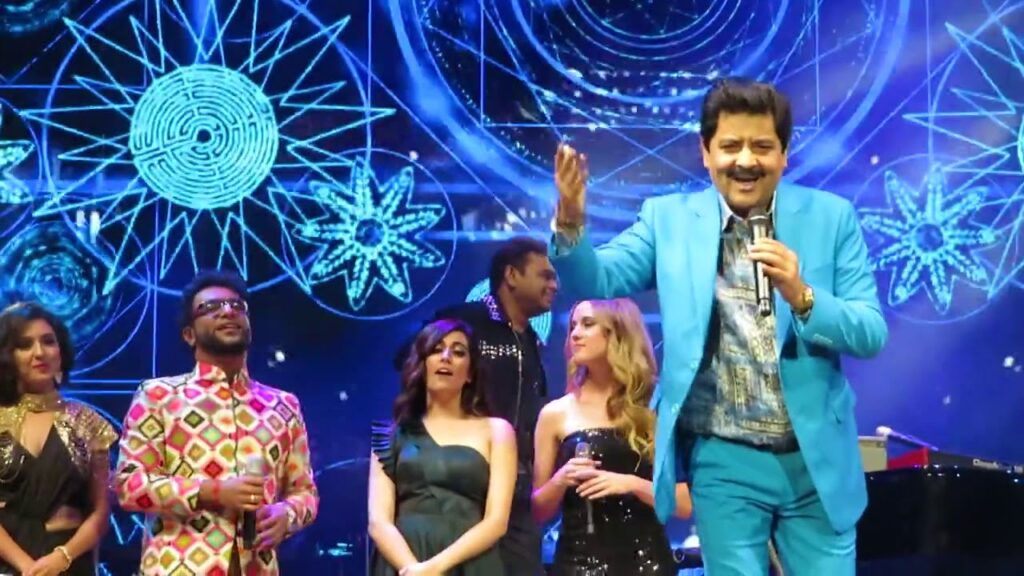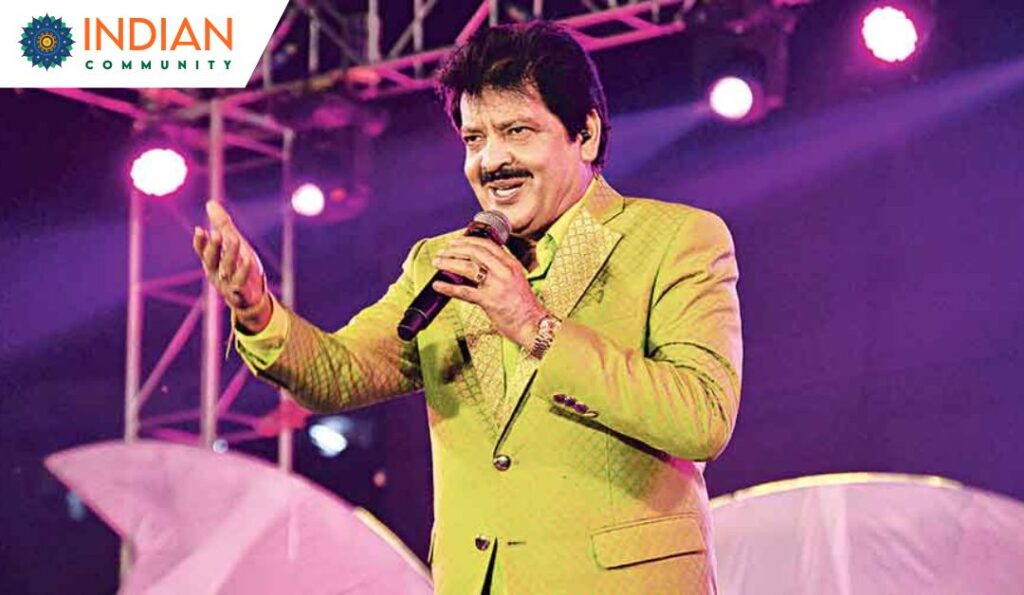Udit Narayan Jha, popularly known as Udit Narayan, was born on December 1, 1955, in the village of Baisi in the Supaul district of Bihar, India. His father, Harekrishna Jha, was a farmer, and his mother, Bhuwaneshwari Devi, was a folk singer, which significantly influenced his musical journey. Growing up in a rural setting, Udit developed an early interest in music, inspired by his mother’s singing and the traditional Bhojpuri songs that were a part of his cultural heritage.
Education and Early Musical Training
Udit’s formal education took place in Nepal, where he attended Jageshwar High School and later Ratna Rajya Laxmi Campus, Kathmandu. His talent for singing was evident from a young age, and he was actively involved in various musical activities during his school and college years. Recognizing his potential, Udit’s family supported his decision to pursue a career in music.
In the early 1970s, Udit Narayan got a scholarship to study classical music at the prestigious Bharatiya Vidya Bhavan in Mumbai, India. This opportunity proved to be a turning point in his career, allowing him to hone his skills under the guidance of renowned music gurus.

Beginnings of a Career in Music
Udit’s professional career began in Nepal, where he started as a Maithili and Nepali folk singer for Radio Nepal. His melodious voice quickly gained popularity, and he became a household name in Nepal. However, his aspirations lay in Bollywood, the heart of the Indian music industry.
In 1980, Udit Narayan made his playback singing debut in Bollywood with the song “Mil Gaya Mil Gaya” from the movie “Unees-Bees,” composed by Rajesh Roshan. Despite his evident talent, it took a few more years for him to get his big break.
Breakthrough: “Qayamat Se Qayamat Tak”
Udit Narayan’s breakthrough came in 1988 with the film “Qayamat Se Qayamat Tak,” starring Aamir Khan and Juhi Chawla. The film’s music, composed by Anand-Milind, became a massive hit, and Udit’s rendition of songs like “Papa Kehte Hain” and “Ae Mere Humsafar” catapulted him to fame. The soundtrack of “Qayamat Se Qayamat Tak” not only won numerous awards but also established Udit Narayan as one of the leading playback singers in Bollywood.

Dominating the 1990s and 2000s
The 1990s and 2000s were the golden era for Udit Narayan. He became the voice behind some of the biggest Bollywood hits, collaborating with top composers like Anu Malik, Nadeem-Shravan, Jatin-Lalit, and A.R. Rahman. His versatility allowed him to sing a wide range of songs, from romantic ballads to peppy dance numbers.
Some of his iconic songs from this period include:
- “Pehla Nasha” from “Jo Jeeta Wohi Sikandar” (1992)
- “Mehndi Laga Ke Rakhna” from “Dilwale Dulhania Le Jayenge” (1995)
- “Ruk Ja O Dil Deewane” from “Dilwale Dulhania Le Jayenge” (1995)
- “Jaadu Teri Nazar” from “Darr” (1993)
- “Chand Chupa Badal Mein” from “Hum Dil De Chuke Sanam” (1999)
- “Mitwa” from “Kabhi Alvida Naa Kehna” (2006)
His collaboration with A.R. Rahman for the song “Mitwa” in “Kabhi Alvida Naa Kehna” won him critical acclaim and added another feather to his cap.
Awards and Recognitions
Udit Narayan’s contribution to Indian music has been recognized with numerous awards and honors. Some of the most notable ones include:
- National Film Awards: Udit has won five National Film Awards for Best Male Playback Singer for his songs in films like “Qayamat Se Qayamat Tak,” “Lagaan,” “Saudagar,” “Hum Hain Rahi Pyar Ke,” and “Pardes.”
- Filmfare Awards: He has won five Filmfare Awards, making him one of the most awarded playback singers in the history of the awards.
- Padma Shri: In 2009, Udit Narayan was honored with the Padma Shri, India’s fourth-highest civilian award, in recognition of his contribution to the arts.
- Padma Bhushan: In 2016, he was awarded the Padma Bhushan, India’s third-highest civilian award.

Personal Life
Udit Narayan is married to Deepa Narayan Jha, who is also a singer. The couple has a son, Aditya Narayan, who has followed in his father’s footsteps and established himself as a successful playback singer and television host.
Even after more than four decades in the industry, Udit Narayan continues to charm audiences with his soulful voice. He remains active in playback singing and performs at concerts and music festivals worldwide. His legacy is not just limited to his songs; he has inspired countless aspiring singers and continues to be a guiding light for them.
Udit Narayan’s journey from a small village in Bihar to becoming one of Bollywood’s most celebrated playback singers is a testament to his talent, perseverance, and passion for music. His voice has been the soundtrack to many people’s lives, and his contributions to Indian cinema will be remembered for generations to come.

